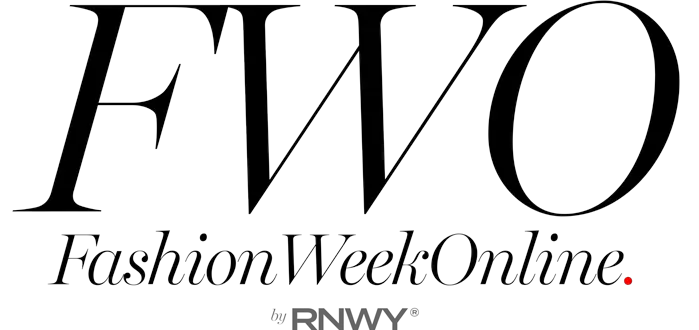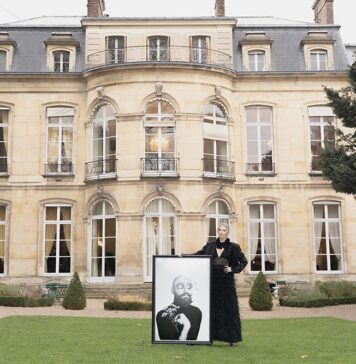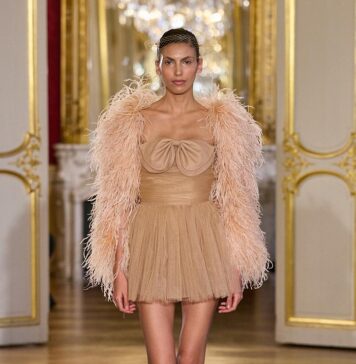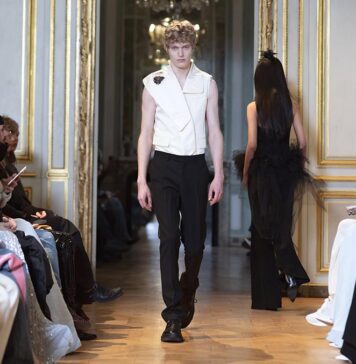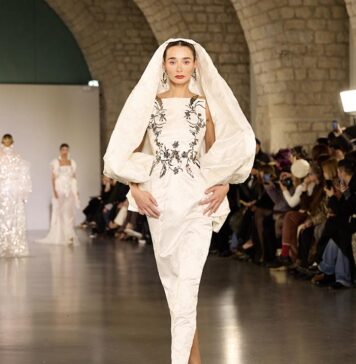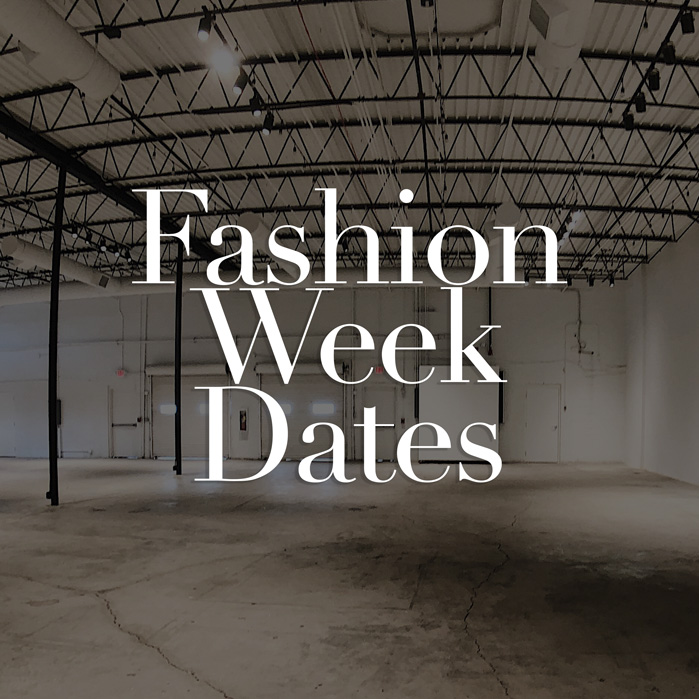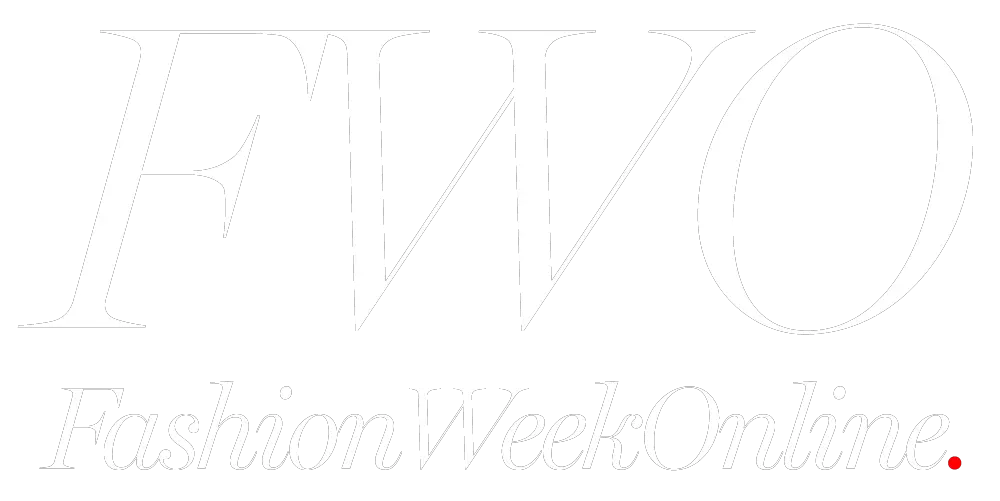Paris Fashion Week News.
[huzzaz id=”pfw” vpp=”4″ pro=”1″ layout=”side” class=”hzWrap-below” search=”1″ titleoverlay=”1″ nocoverart=”1″ highlight=”*000000″ autoplay=”1″]
Runway Reporter Paris
Paris Fashion Week: History, Schedule & Designer Highlights
Last Updated: April 7, 2025
See an error? Send story corrections here.
Paris Fashion Week represents a focal point of the global fashion calendar, where established houses and emerging designers present collections that shape the industry’s direction. Held biannually in February-March and September-October, this influential event draws industry professionals, media, celebrities, and style enthusiasts to witness the future of fashion firsthand. Fashion Week Online®, the authority on global fashion weeks since 2012, provides this comprehensive guide covering Paris Fashion Week’s history, schedule, renowned designers, and practical information for attendees.
Trademark Notice: “Paris Fashion Week” is a trademark owned by the Fédération de la Haute Couture et de la Mode (FHCM). Fashion Week Online® provides information about tickets to independent showcases in Paris during the same timeframe as the official shows. Fashion Week Online® is not affiliated with, endorsed by, or sponsored by the FHCM.
Paris Fashion Week: A Historical Perspective
Paris has been central to global fashion since the 17th century, but Paris Fashion Week in its current form began in 1973 when the Chambre Syndicale de la Haute Couture (now part of the FHCM) organized the first official fashion week. Today, Paris hosts several major fashion weeks throughout the year, including womenswear ready-to-wear, menswear, and haute couture presentations, as documented by fashion historians and the Business of Fashion.
What distinguishes Paris Fashion Week is its balance of creative innovation and traditional craftsmanship. The event provides designers with a platform to showcase both commercial collections and conceptual fashion statements, maintaining Paris’s position as a leading fashion capital.
Understanding the Paris Fashion Week Calendar
Paris Fashion Week follows a structured annual calendar with multiple dedicated weeks throughout the year:
Paris Fashion Week: Womenswear
The women’s ready-to-wear collections are presented twice annually:
- February-March: Fall/Winter collections
- September-October: Spring/Summer collections
These presentations feature established luxury houses like Chanel, Dior, and Louis Vuitton alongside contemporary brands such as Isabel Marant, Chloé, and Balmain. Fashion Week Online® provides comprehensive Paris Fashion Week schedules to help you navigate the events.
Paris Men’s Fashion Week
Men’s fashion takes center stage during two dedicated weeks:
- January: Fall/Winter menswear collections
- June: Spring/Summer menswear collections
The menswear presentations showcase designs from houses like Hermès and Dior Homme alongside designers such as Rick Owens and Yohji Yamamoto. For an in-depth look at this growing segment, visit our Paris Men’s Fashion Week guide.
Paris Haute Couture Week
The most exclusive fashion presentations occur during Haute Couture Week:
- January: Spring/Summer haute couture
- July: Fall/Winter haute couture
These showcases feature high-end handcrafted garments created by specialized artisans. Only fashion houses officially designated by the Chambre Syndicale de la Haute Couture can legally use the term “haute couture,” as explained by Vogue Business in their analysis of the haute couture industry. Learn more in our comprehensive Paris Haute Couture guide.
Key Paris Fashion Week Venues
Paris Fashion Week takes place across numerous venues, from historic landmarks to modern spaces. Understanding the key locations helps with planning an efficient fashion week experience:
Historic and Iconic Venues
- Le Carrousel du Louvre: Located beneath the famous museum, this event space regularly hosts major fashion presentations
- Grand Palais: The glass-domed building serves as the backdrop for Chanel’s runway shows
- Palais de Tokyo: A contemporary art museum that transforms into a runway setting for forward-thinking designers
For detailed information about these and other important locations, visit our Paris Fashion Week Venues guide, which includes transportation tips and neighborhood insights.
Emerging Show Spaces
Beyond the traditional venues, Paris Fashion Week continues to evolve with presentations in unexpected locations:
- Alternative Spaces: Former industrial buildings, art galleries, and historic sites repurposed for fashion presentations
- Digital Platforms: Virtual fashion shows and hybrid physical/digital experiences that expand access to global audiences
Fashion Week Online® monitors these developments, providing updated information about both established and emerging show locations.
Notable Designers at Paris Fashion Week
Paris Fashion Week is known for showcasing work from both legendary fashion houses and innovative emerging designers. Here’s a look at some of the most significant names that regularly present at PFW:
Established Maisons
- Chanel: Known for spectacular sets and modern interpretations of Coco Chanel’s design principles under creative director Virginie Viard
- Dior: Maria Grazia Chiuri brings a feminist perspective to the storied house founded by Christian Dior
- Louis Vuitton: Nicolas Ghesquière consistently delivers forward-thinking womenswear collections
- Saint Laurent: Anthony Vaccarello maintains the brand’s elegant-with-edge aesthetic
- Hermès: Nadège Vanhee-Cybulski creates refined collections that emphasize the house’s leather expertise
- Balenciaga: Known for collections that challenge fashion conventions and industry practices
- Givenchy: The house continues to evolve its elegant aesthetic for contemporary audiences
- Valentino: Pierpaolo Piccioli’s romantic vision continues to define luxury fashion
Influential Contemporary Designers
- Rick Owens: Known for avant-garde designs and theatrical runway presentations
- Dries Van Noten: The Belgian designer is celebrated for his masterful prints and textiles
- Isabel Marant: Defines the casual-chic aesthetic that epitomizes Parisian style
- Balmain: Creative director Olivier Rousteing brings bold silhouettes and cultural commentary
- Chloé: Continues its legacy of designing for the independent, free-spirited woman
- Jacquemus: Simon Porte Jacquemus creates Instagram-friendly collections with a Mediterranean influence
- Marine Serre: A rising star known for sustainable practices and futuristic designs
Experimental and Emerging Talents
Paris also serves as a platform for innovative newer designers who push boundaries:
- Thom Browne: Known for theatrical shows that blend tailoring with avant-garde concepts
- Coperni: Sébastien Meyer and Arnaud Vaillant focus on tech-forward fashion
- Ottolinger: The Swiss duo brings a deconstructed approach to contemporary clothing
- Koché: Christelle Kocher blends streetwear influences with couture techniques
- Rokh: Rok Hwang creates collections that blend structured tailoring with unexpected details
Each season, these designers and many others contribute to Paris Fashion Week’s reputation as a showcase for creativity and craftsmanship. For specific designer show schedules, check our Paris Fashion Week schedule page.
Navigating Paris During Fashion Week
The city experiences increased activity during fashion week, particularly in key fashion districts. Here’s how to make the most of your visit:
Where to Stay
Selecting the right accommodation location is important for an efficient fashion week experience. The most strategic neighborhoods include:
- Le Marais (3rd and 4th arrondissements): Central location with boutique hotel options and active street style
- Saint-Germain-des-Prés (6th arrondissement): Classic Parisian neighborhood with proximity to major venues and luxury shopping
- The 8th arrondissement: Home to Avenue Montaigne and well-positioned for major runway shows
Our Paris Fashion Week Hotels guide provides detailed recommendations for every budget and preferred location.
Dining During Fashion Week
Paris’s restaurants become especially busy during fashion week, with industry gatherings at key establishments. Book reservations well in advance for these fashion industry favorites:
- L’Avenue: A popular location on Avenue Montaigne
- Caviar Kaspia: A frequent fashion industry gathering place
- Les Deux Magots: The historic café with a long fashion connection
Discover more dining options in our Paris Fashion Week Restaurants guide, including tips on securing last-minute reservations.
How to Attend Paris Fashion Week
While many Paris Fashion Week events are invitation-only, there are multiple ways to experience the events firsthand:
Industry Access
Official show invitations are typically reserved for:
- Fashion journalists and media representatives
- Buyers from major retailers
- Celebrity clients and brand ambassadors
- Fashion influencers with significant industry presence
Industry professionals should register through the Fédération de la Haute Couture et de la Mode for potential accreditation.
Access for Fashion Enthusiasts
Fashion enthusiasts without industry credentials can still experience Paris Fashion Week through:
- Independent Showcases: Fashion Week Online® provides information about independent runway presentations occurring during the official fashion week period
- Fashion Week Events: Public exhibitions, pop-up installations, and industry panels often run concurrently with the main shows
- Digital Access: Many shows are livestreamed, allowing global audiences to watch collections in real-time
Paris Fashion Week Street Style
The streets of Paris become an unofficial runway during fashion week, with attendees showcasing personal style that often generates as much interest as the official collections. Key street style locations include:
- The Tuileries Garden during womenswear shows
- Rue Saint-Honoré and the surrounding luxury shopping district
- Outside major venue entrances before and after significant shows
For tips on getting noticed by street style photographers and creating memorable fashion week looks, visit our Street Style Guide.
Planning Your Paris Fashion Week Experience
For the most efficient fashion week experience, advance planning is essential:
When to Book
- Accommodations: Reserve at least 3-4 months in advance, as hotels fill quickly during fashion week
- Transportation: Plan for increased demand for taxis and car services
- Restaurant Reservations: Book key dining spots 4-6 weeks ahead
Essential Resources
Fashion Week Online® provides comprehensive planning tools:
- Paris Fashion Week Insider’s Guide for detailed navigation strategies
- Fashion Week Calendar for precise timing of current and upcoming seasons
- February-March Fashion Week and September-October Fashion Week seasonal guides
The Future of Paris Fashion Week
Paris Fashion Week continues to evolve while maintaining its position as a leading fashion platform. According to Fashion United and Women’s Wear Daily, current trends shaping its future include:
- Sustainability Focus: Increased emphasis on environmental responsibility in both the collections and show production, as highlighted by the Global Fashion Agenda
- Digital Integration: Enhanced hybrid formats that combine physical shows with digital experiences
- Inclusivity: Broader representation across age, size, and background
Fashion Week Online® tracks these developments, providing our readers with current insights as Paris Fashion Week evolves.
Experience Paris Fashion Week with Fashion Week Online®
Since 2012, Fashion Week Online® has been a leading resource for fashion week information worldwide. Our comprehensive coverage and insider knowledge make us a trusted source for both industry professionals and fashion enthusiasts navigating Paris Fashion Week.
For the most current Paris Fashion Week information, explore our seasonal guides to February-March Fashion Week and September-October Fashion Week, updated regularly with the latest details.

